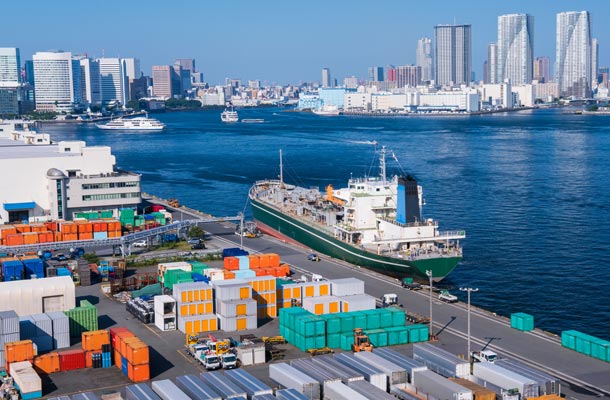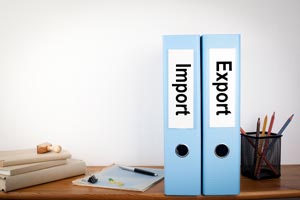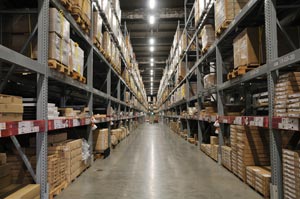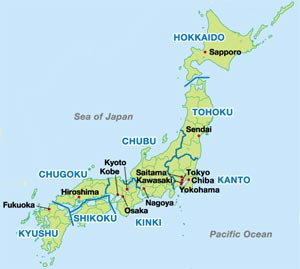How do I avoid Customs delays when shipping to Japan?

Here are some tools, procedures and helpful hints to minimize Customs-related issues that might cause further delays to your Japan shipments.
The pandemic has created additional port congestion globally, especially in transpacific markets. Japan is currently facing a lack of equipment and trucking at all ports, a lack of vessel space due to export delays and increased lead times for bookings. Now more than ever, choosing the right logistics partner is crucial for the successful navigation of Japanese Customs.
Before choosing a logistics provider and shipper for your Japan cargo, make sure they have real assets on the ground combined with local knowledge and expertise relating to:
- Customs requirements, import procedures and formalities
- Prohibited and restricted import commodities to Japan
- Complete and flexible knowledge of all Japan ports
- Proper and appropriate use of the Japanese language and social customs (critical, and more important than ever)
- Required shipping documents
Navigating Japan Customs Requirements, Import & Export Procedures and Formalities
 It’s important when doing business in Japan to understand the import requirements and documentation:
It’s important when doing business in Japan to understand the import requirements and documentation:
- The commercial invoice should be as descriptive as possible for each line item.
- The packing list should always include the exact contents and measurement of each pallet/container including the gross and net weight of each item. It must be specific and free of spelling errors.
- When completing Customs documents, list each commodity separately, providing detailed description of each line item, including what it’s made of and how it will be used.
- Keep multiple piece shipments together, label them individually and the package too.
- Use heat-treated pallets and wood packaging materials in compliance with ISPM 15.
- Legibly print the commodity’s country of origin/manufacturer to indicate where your cargo was manufactured, grown or produced.
- Always include contact information of the shipper and the consignee (contact person, phone number and email addresses) on your shipping documents.
- Declare the accurate value for your item, even if it’s being provided to the recipient at no charge (for example, sample or not for resale).
- Make sure information is consistent across all required Customs documents.
 When exporting to Japan, documentation and procedures are also critical, including:
When exporting to Japan, documentation and procedures are also critical, including:
- Shipping and import formalities start with the logging of an import declaration and end with the issuance of an import permit after the necessary examination and payment of Customs duty and excise tax.
- Any person wishing to import goods must declare them to the Director General of Customs and obtain an import permit after the necessary examination of the goods.
- Correct packing, proper marking and labeling are critical to smooth Customs clearance in Japan, as noted above.
Required Shipping Documents to Clear Customs in Japan
Minimum required shipping documents include a commercial invoice, packing list and an original, signed bill of lading or air waybill (if shipped by air).
Additional documents may be required depending on commodities shipped.
Each line item on the commercial invoice should be as descriptive as possible, and the packing list should include the detailed contents and measurements of each container, including the gross and net weights of each package or pallet. Importantly, Japanese Measurement Law requires that all weights and measures on a packing list be Metric System values.
Understandably, this process is complex and will require an experienced commercial freight shipper such as DGX-Dependable Global Express, to help save time, money and stress. Don’t hesitate to request a free consultation with us. We have knowledgeable, local assets on the ground and throughout Japan to move freight successfully in and out of Japan. For more information, visit here. Read on for more valuable information for shipping to or from Japan.
Prohibited and Restricted Import Commodities in Japan
 Japan’s prohibited imports include:
Japan’s prohibited imports include:
- Narcotics and related utensils or drug paraphernalia
- Firearms and firearm parts including ammunition
- Explosives and gunpowder
- Precursor materials for chemical weapons, germs that are likely to be used for bio-terrorism
- Counterfeit goods or imitation coins or currency
- Obscene materials or goods that violate intellectual property rights
- Other restricted items included but are not limited to certain agricultural and meat products, endangered species and products such as ivory, animal parts and fur where trade is banned by international treaty
- Aerosols
- Animal feed
- Auto parts
- Batteries
- Chemicals
- Cosmetics
- Food additives
- Fruit, nut and vegetable preparations
- Fur
- Meat and fish products
- Medical devices
- Personal effects and more
- Pet products
- Pharmaceuticals
- Toiletries
- Toys
General Shipping Advice to Japan
 There are five major base ports in Japan: TOKYO, YOKOHAMA, NAGOYA, KOBE and OSAKA. These five ports account for the bulk of Japan’s overall international container traffic by ocean.
There are five major base ports in Japan: TOKYO, YOKOHAMA, NAGOYA, KOBE and OSAKA. These five ports account for the bulk of Japan’s overall international container traffic by ocean.
Average transit time from USA to Japan by ocean:
From US West Coast (direct service)
14-20 days
From US East Coast (all water service)
30-40 days
How to select your Destination Port
Always consult first with your buyer (importer and their Customs broker) as some imported products, such as apparel, furniture or general merchandise, can be brought into Japan after undergoing the Customs inspection at the nearest port of entry.
Note that Japan imposes restrictions on the sales or use of certain products including health-related goods such as medical products, pharmaceuticals, agricultural products and chemicals.
If food-related items are being imported, the importer must submit a “Notification Form for Importation of Food” to the Quarantine Station. You will then be asked to ship to the designated port with a Quarantine Station where on-site inspection will be performed to verify the food poses no threat to human health.
- Japanese Customs reviews and evaluates these types of products for import suitability before shipping to Japan. Licenses from the relevant regulatory agencies may also be required.
- The use of certain chemicals, food additives and cosmetics is severely regulated. Make sure to do your research before shipping.
Proper and Appropriate Use of the Japanese Language is Critical to Success.
 Communicating properly in Japanese is essential to connecting with local business partners and their target consumers in both person-to-person communications as well as promotional materials. If, for instance, you want to move the import process along quickly and successfully, you must make sure product labeling and requirements are written in proper Japanese language and abide by government regulations.
Communicating properly in Japanese is essential to connecting with local business partners and their target consumers in both person-to-person communications as well as promotional materials. If, for instance, you want to move the import process along quickly and successfully, you must make sure product labeling and requirements are written in proper Japanese language and abide by government regulations.
Being respectful of the Japanese culture is a fundamental requirement for companies wanting to build a trusting relationship with their Japanese partners. The Japanese society is complex in nature—including unwavering respect for age, both hierarchical and group-oriented. In addition to delivering high quality products and services expediently, be prepared to invest the time necessary to build long-term relationships with your Japanese partners.
DGX also believes in long-term relationships, with a consultative and transparent approach to international shipping. We can guide you through each step of your next Japan shipment, navigating current congestion-related issues, minimizing unnecessary customs delays and avoiding unneeded headaches.
As part of the personalized attention provided to every customer, DGX assigns a dedicated sales agent at the front end of your shipment planning.
To learn more about shipping to Japan, read our previous blog post, “Need export shipping advice to Japan?”
For a free consultation and rate request, call us at (888) 488-4888, Ext. 2011 or email us, and/or visit our DGX Japan destination page.